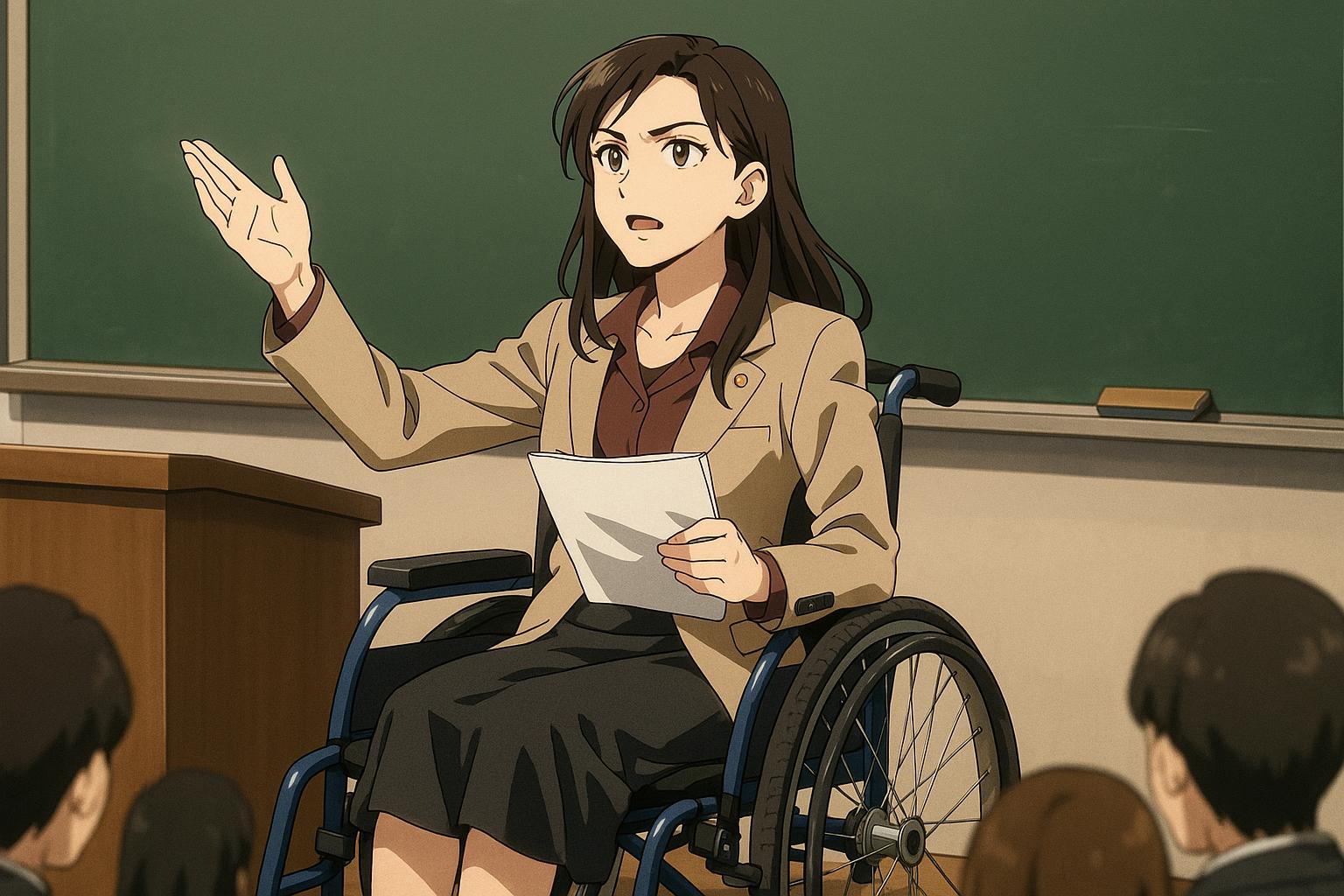A significant victory for disability rights has emerged from University College London (UCL), where Dr. Nora Sarabajaya Kumar, a lecturer and wheelchair user, successfully challenged the institution's inadequate accessibility measures. For eight long years, Dr. Kumar faced considerable obstacles in accessing her workplace within the political science department, where efforts to support her were woefully insufficient. The tribunal found that UCL failed to provide reasonable adjustments, which resulted in substantial disadvantages for her.
Dr. Kumar, who has Ehlers-Danlos syndrome, a rare connective tissue disorder, and is registered as severely sight impaired, asserted that her experiences included being confined to inaccessible areas during social events and excluded from essential staff gatherings. One particularly alarming incident involved her being physically lifted into a goods lift that was ill-suited for her wheelchair, underscoring a lack of sensitivity towards her needs and highlighting broader systemic failures in accommodating disabled staff.
The tribunal confirmed that the university had an obligation to ensure venues were accessible. Employment Judge Timothy Adkin stated that UCL knew of Dr. Kumar's disability and should have acted to prevent her exclusion. He noted that the institution could not simply rely on venues to check for adequate wheelchair accessibility, indicating a considerable lapse in their duty of care. Dr. Kumar eloquently described feeling "lonely and isolated," remaining "on the outside looking in" as colleagues convened without her.
While UCL had invested £5 million in refurbishing nearby facilities, it neglected to apply for essential planning permissions to create adequate access features, mistakenly believing that the Grade-II listed status of the townhouses would hinder necessary modifications. A temporary ramp, which was deemed unnecessary in 2017 due to fire safety issues, was insufficient for her needs and described by Dr. Kumar as being "frightening" and akin to a “ski jump.”
The upcoming construction work following Camden Council's recent planning approval in May 2024 aims to remediate some of these accessibility issues, illustrating a step forward after years of neglect. However, the challenges reflected in Dr. Kumar's experience shine a light on a broader issue faced by disabled individuals in higher education. Notably, UCL has established various networks aimed at promoting inclusivity. Dr. Kumar co-leads the Disability, Neurodiversity, and Wellbeing Network, which seeks to ensure individuals with disabilities can participate fully in academic life, albeit this initiative underscores how far institutions still have to go in addressing underlying ableism.
Moreover, Dr. Kumar’s activism extends beyond the university setting. She has been vocal about the impact of systemic issues on disabled individuals, particularly regarding the ramifications of COVID-19 on this demographic's rights. In her recent submission to the UK Parliament's Women and Equalities Committee, she emphasised the increased vulnerabilities faced by disabled individuals during the pandemic, particularly highlighting the compounded disadvantages experienced by women with multiple protected characteristics.
The situation at UCL is emblematic of a wider trend across educational institutions in the UK, where challenges persist in providing satisfactory support for disabled students and staff. Investigations into other universities, such as King's College London, have also revealed systemic inadequacies, with students expressing feelings of being treated as burdens and lacking essential support services. This broader context makes Dr. Kumar's victory not just a personal triumph, but a pivotal moment for disabled rights in academia.
As the tribunal's ruling awaits a determination of compensation, it raises critical questions about institutional accountability, the extent of necessary reforms, and the broader culture of inclusion within academia. Dr. Kumar's persistence serves as a potent reminder of the importance of advocating for change and the ongoing need to dismantle barriers that impede accessibility and equality in higher education and beyond.
Reference Map
- Paragraph 1: [1]
- Paragraph 2: [1]
- Paragraph 3: [1]
- Paragraph 4: [1]
- Paragraph 5: [1], [2], [3]
- Paragraph 6: [1], [4]
- Paragraph 7: [6], [7]
Source: Noah Wire Services
